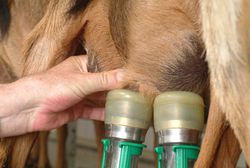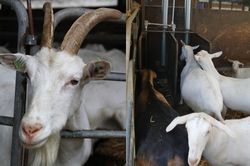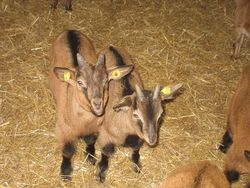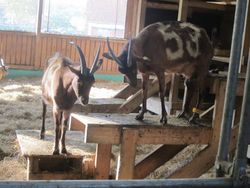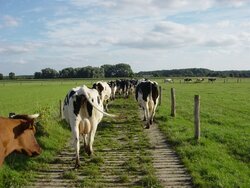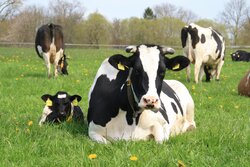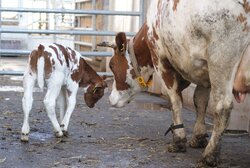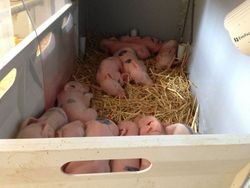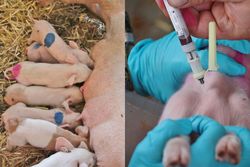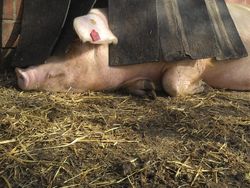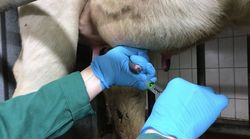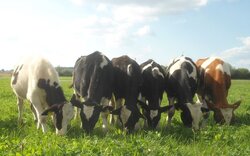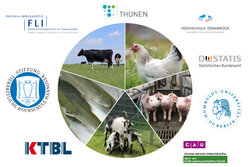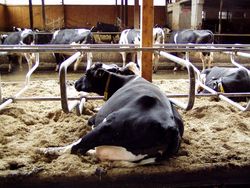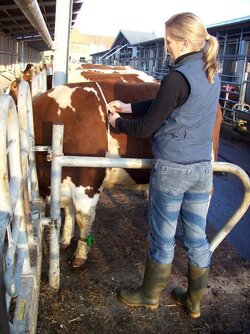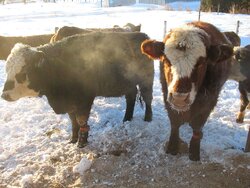Animal welfare
Animal welfare and animal-friendly livestock management are central in organic agriculture, which are firmly anchored in the IFOAM Basic Principles of Health and Justice (IFOAM 2014). These principles serve internationally as guidelines for organic agriculture and are also reflected in the production regulations for organic agriculture legally valid in the European Union.
Prevention is crucial to maintain herd health and welfare. In all parts of the environment behavioral and biological needs of the animals has to be taken into account in order reduce stress. On the other hand herd management and hygiene are needed to reduce infection prevalence and not to overstraine the adaptability of farm animals in the farm environment. Therefore the aim of the research is to focus on the development and enhancement of preventive management concepts to enhance animal health and welfare under practical conditions. Furthermore the aim is to focus on the identification and validation of animal based indicators to assess health and welfare of livestock on-farm. Epidemiologic topics such as the analysis of risk factors for certain production diseases are also under study.

![[Translate to English:] [Translate to English:]](/media/_processed_/8/e/csm_Bildschirmfoto_2021-03-03_bearb_fc48ac88bf.jpeg)
![[Translate to English:] [Translate to English:]](/media/_processed_/8/e/csm_Bildschirmfoto_2021-03-03_bearb_ba3ec0e9d7.jpeg)
![[Translate to English:] ÖKoTier](/media/_processed_/1/5/csm_OeKoTier_Logo_farbig_2d6a0cc09c.png)
![[Translate to English:] Animal welfare, competence and cooperation between learning locations](/media/_processed_/e/d/csm_TiKoPLUS_InnoVET_Logo_TiKoPlus_46c4051890.jpg)
![[Translate to English:] Risk-based model for dairy herd welfare: Field data collection](/media/_processed_/f/8/csm_Projekt_Q-Check_9126f71b84.jpg)


![[Translate to English:] InnoRind - Cattle Innovation Network – sustainable cattle farming in Germany, considering animal welfare, environmental impacts and social acceptance](/media/_processed_/d/7/csm_Logo_InnoRind_ee68863cfc.jpg)
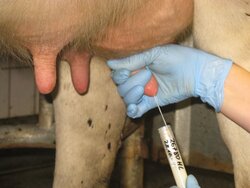
![[Translate to English:] Calf rearing with cow contact: natural, healthy and feasible](/media/_processed_/2/8/csm_Projekt_KaeKNatGeB_c_Jacqueline_Felix_2ab571e033.jpg)
![[Translate to English:] sLowFeedChickIns](/media/_processed_/4/9/csm_TI-OL_Helen_Pluschke_Slowfeedchickins_6c1f856da0.jpg)
